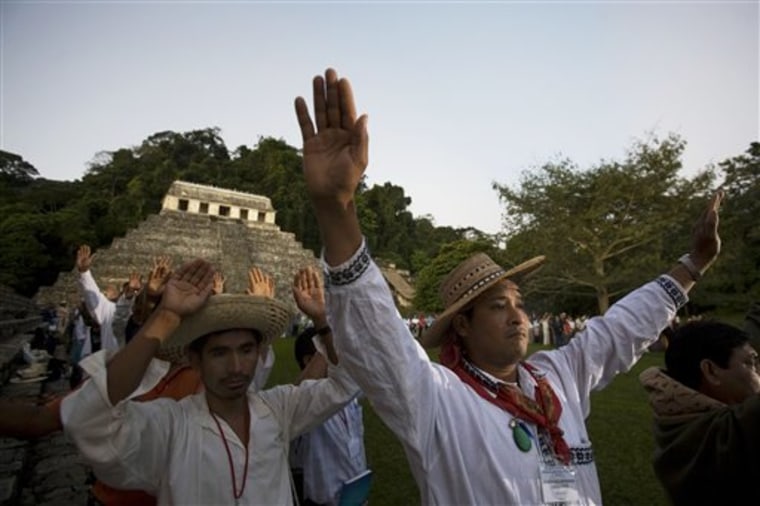Indians from Mexico, the United States and Canada gathered before dawn Monday to light incense, pray and sing in the shadow of ancient Mayan pyramids, asking the contaminated earth for forgiveness.
More than 200 leaders from 71 American Indian nations were joining in this jungle town to offer indigenous wisdom about ways to save the polluted planet.
"Our Mother Earth is being polluted at an alarming rate, and our elders say that she is dying," said Raymond Sensmeier, a Tlingit leader from Yakutat, Alaska. "The way the weather is around the world ... a cleansing is needed."
The pre-dawn ceremony that launched the conference included fire, copal incense, chants in Lacandon Maya and blasts from a conch shell to the four cardinal points.
Mexico's environment secretary, Juan Elvira Quesada, said the gathering is meant "to present the teachings of the original peoples of North America."
"In this way, the indigenous communities can become the natural guides to restoring balance and harmony in the world," he said.
The lessons they have to teach are simple — based on reviving Indian notions about ownership, use, compensation and respect.
"I sometimes talk to scientists," said Sensmeier, "and they compartmentalize things, put things in boxes and disconnect them, and doing so promotes disharmony and imbalance."
Kuetlachtli Texotik, a Nahuatl healer from Mexico whose name means "Blue Wolf," agreed.
"Our grandfathers taught us to have an integrated vision," he said. "The important thing is to look for balance. We should take care of what does not belong to us, for the future, because it is only ours temporarily."
Indian cultures also have concrete examples to share.
Kayum Garcia's Lacandon people plant small, dense, rotating fields of jungle-friendly crops in southern Mexico and avoid pasture-hungry cattle, helping preserve the jungle without cutting it down.
"Cutting down a tree just because you want to, I just can't understand that," said Garcia, 31.
The Nahuatl-speaking Aztecs were able to use Mexico City's extensive lake system as both a source of food and a flood-control mechanism. The lakes were drained after the Spanish arrived, and now the metropolis suffers a constant threat of floods.
Some of the lessons are even simpler, reminiscent of advice grandparents often use.
"You'd catch one fish, just one, and you never played with your food, never wasted it," said Sensmeier. "We used everything."
